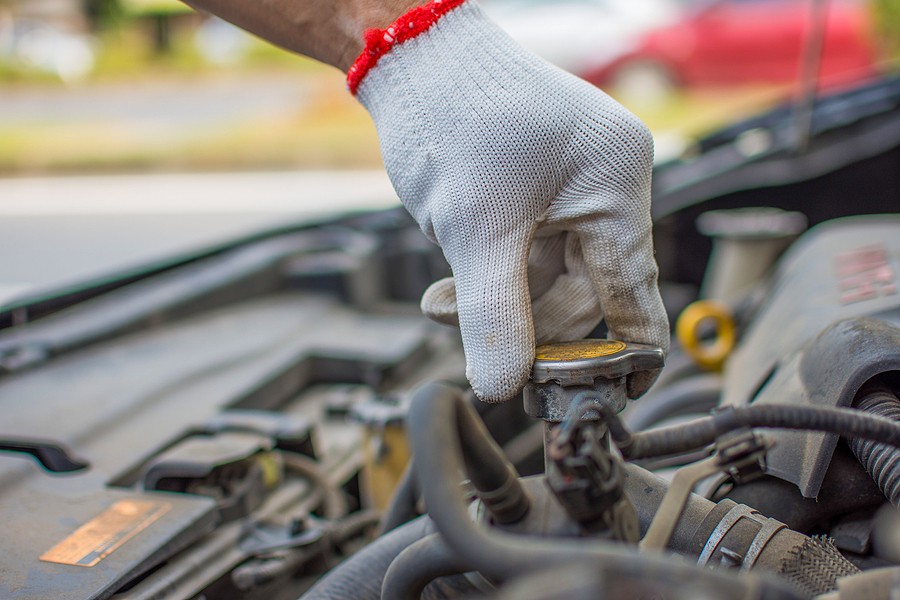If you're searching for “how to know if your car's cooling system is in trouble,” below are the common signs to look for:
- Engine overheating
- Coolant leaks
- Low coolant level
- Temperature fluctuations
- Coolant discoloration
- White exhaust smoke
- Dashboard running lights
- Strange noises
- Slow cabin heating
- Steam from the engine compartment
The cooling system is responsible for maintaining the engine temperature. The engine must operate within a certain temperature range. If it's not maintained, you deal with significant engine damage that might lead to engine self-distraction.
Maintaining the cooling system is one of the most critical tasks you must keep up with as a car owner. Otherwise, we can deal with problems that might cost you the entire vehicle in no time.
This article summarizes the ten most common symptoms indicating your cooling system is in trouble. Whenever you deal with these symptoms, you must consult your mechanic and have him fix the vehicle before you do with further complications.
How to Know If Your Car's Cooling System Is in Trouble?
One of the most critical tasks for you as a car owner is keeping up with the cooling system by monitoring any signs of potential problems. Detecting these problems early helps avoid costly repairs that might end you selling your vehicle because you can't afford to fix it.
The following list highlights the most common symptoms indicating your cooling system is in trouble. Whenever you deal with those, you must have the mechanic take a closer look and fix the vehicle.
Remember that sometimes you might not be able to drive your car without towing it to the nearest repair shop. Therefore, we highly encourage you to confirm with your mechanic before you continue driving your car.
1. Engine overheating
Since the cooling system is responsible for maintaining the engine temperature, you will immediately notice that your engine is overheating. This can indicate that you need to fix the cooling system and check for any potential coolant leak.
2. Coolant leaks
Usually, the first and most critical thing going on with your cooling system that leads to overheating is coolant leaks. Typically, this is the first thing you want to start checking before looking at anything else in the cooling system because that's potentially the main reason for what's going on with your engine overheating.
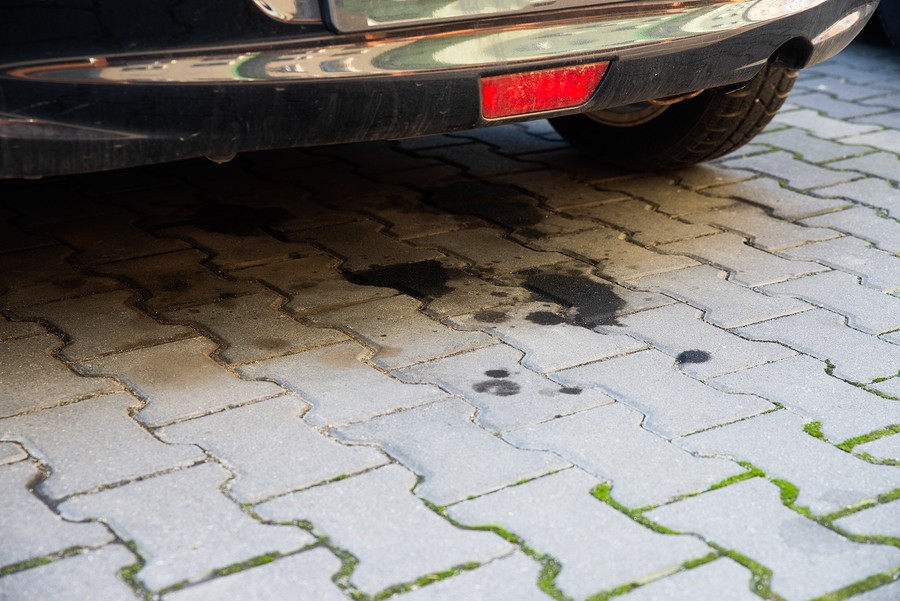
3. Low coolant level
If a coolant leak happens longer, it will be translated into a low coolant level. For example, if you look at the reservoir on your engine compartment that holds the equivalent, you'll see that the coolant is sometimes dropping below the minimum point.
4. Temperature fluctuations
Since the temperature gauge on the dashboard is responsible for monitoring the engine temperature all the time, you'll also notice some fluctuations in the reading, which is inconsistent all the time.
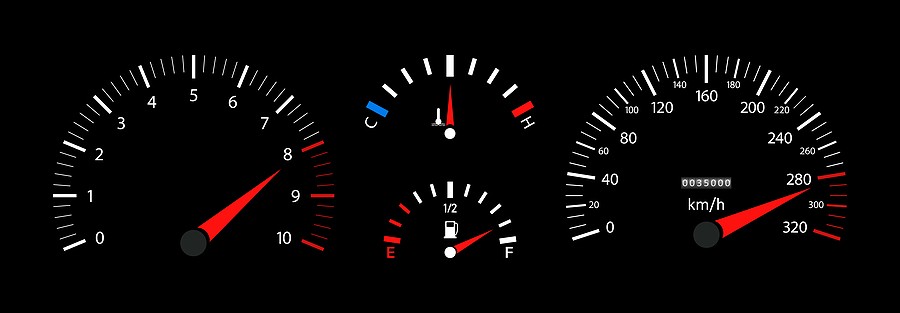
5. Coolant discoloration
Your cooling system problems might also be associated with a contaminated coolant. For example, if you take a closer look and perform a virtual inspection of the colon, you'll see that it's not doesn't have the fresh pink color or whatever color that you used in the beginning when you put a fresh coolant
6. White exhaust smoke
Many people mentioned that whenever they have a cooling system problem, it is also associated with some visible exhaust smoke. If your vehicle is more modern, you shouldn't see visible smoke from the exhaust pipe. If that's not the case, you may have a cooling system problem.
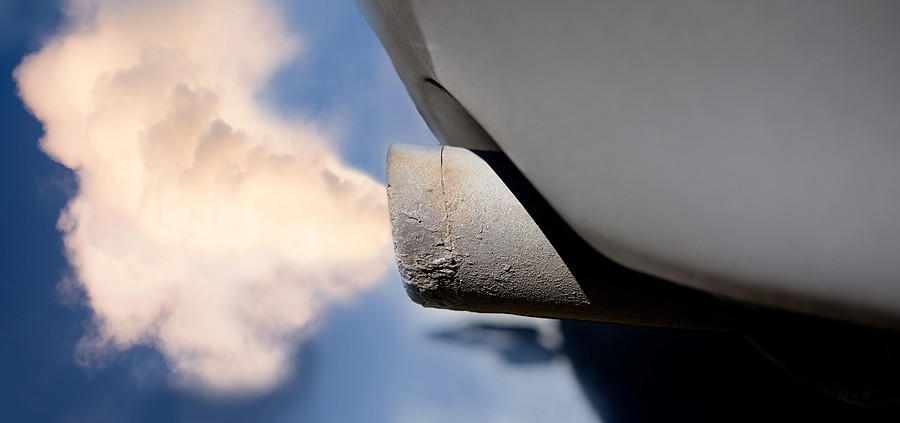
7. Dashboard running lights
If the vehicle starts suffering from engine overheating and other problems, it'll immediately throw a check engine light on the dashboard. Therefore, you must take this light warning seriously because it's just a way for your car to grab your attention to internal problems that you need to fix immediately.
8. Strange noises
Another potential symptom you might experience if your cooling system is in trouble is strange noises from the engine compartment. These noises are more like ticking initially, but sometimes, they can evolve into knocking and banging.
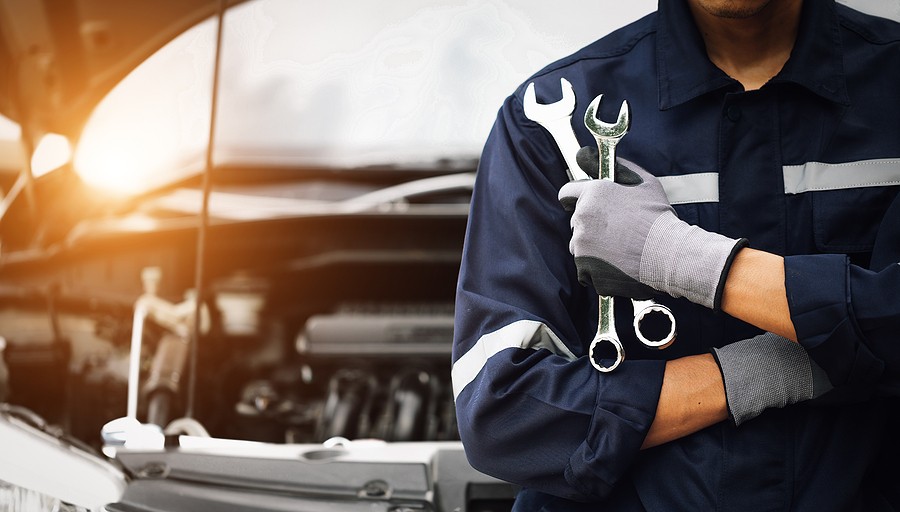
9. Slow cabin heating
The cooling system is also connected somehow to the cabin heating system; if you're not getting the right heating in your cabin, you might want to check on the cabin heating core, but you must also confirm that your cooling system is working properly.
10. Steam from the engine compartment
Finally, if you ignore the cooling system troubles in your car for a longer time, don't be surprised to deal with smoke from the engine compartment, indicating an internal problem.
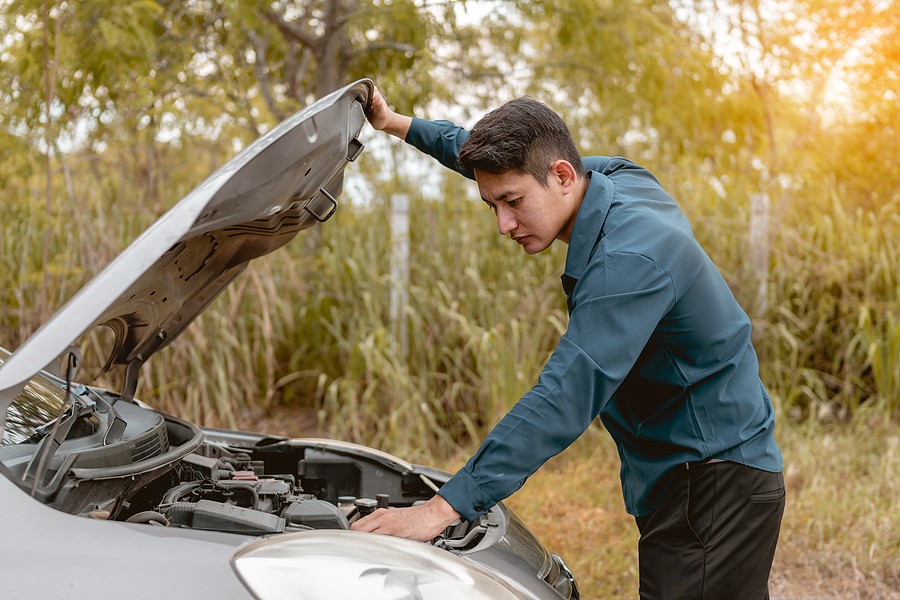
What to do if my car's cooling system is in trouble?
If you confirm that your cooling system is in trouble, you have to act immediately before you deal with further complications that might cause the entire engine if not your safety. Here's what you need to do:
1. Pullover
If driving on the highway and your vehicle allows you, try taking a linear section and pulling over in a safe area. However, if your vehicle is showing severe problems and you're noticing some smoke coming out of the engine compartment, for example, you might need to pull over on the sideway.
2. Turn off the engine
You need to turn off the engine once you're in a safe area and allow people to see you by using some triangles or turning on the hazard flashlights. This allows you to control the problem and prevent it from worsening.
3. Allow the engine to cool down
Before you touch the cooling system, you must leave your car to cool down for at least 30 minutes to an hour in some instances. This is because the cooling system will be very hot, and touching it at this point might lead to some hazards of getting burned.
4. Check the coolant level
After you cool down the engine completely, you can look at the coolant level. A problem like this that got to this point might be associated with a very low coolant level because of an internal or external leak.
5. Look for leaks
If you confirm that the coolant is lower than it should be, look at the vehicle in general and see if you can spot any potential signs of a coolant leak. These leaks could be external and sometimes internal, which might be hard to detect.
6. Tighten the holes
If you notice some connections you need to tighten, try tightening them and see if this resolves your problem. However, if the problem is related to a broken seal, it could be out of your hands.
7. Check for damages
You also need to check for any potential damages within the cooling system. Sometimes, you might see a broken seal or even more major damages that cause your coolant to leak outside the car.
8. Refill the cooling
If you don't see severe damage in the cooling system, you might get away from this problem by simply topping off the corn using any spare count you have in your vehicle, assuming it's the right one for your car.
9. Consult a mechanic
However, if you confirm that your vehicle has more problems than what you can handle, then you'll most likely need to consult for some help if you're a lot of times according to some problems might require you to tow your car to the nearest shop rather than driving it because things get worse.
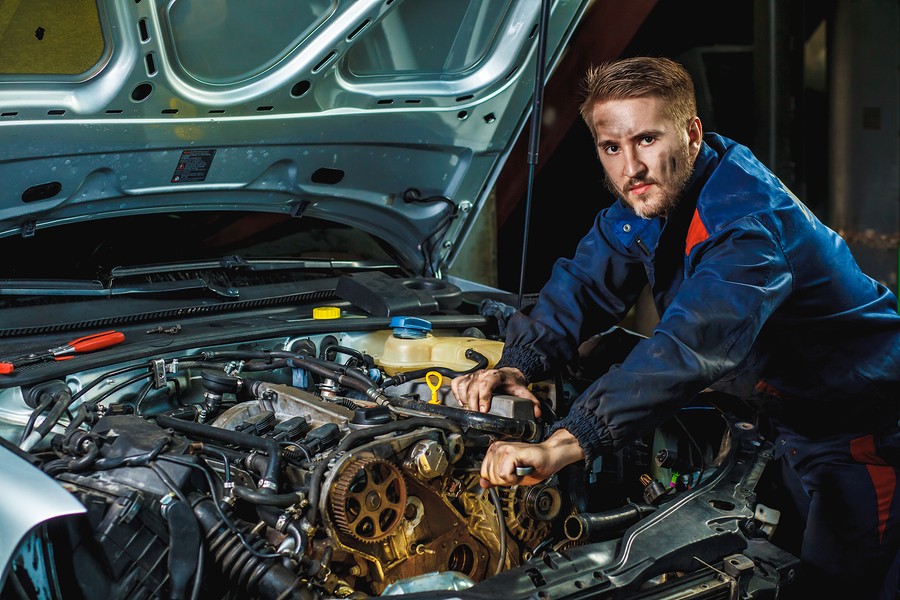
How to Know If Your Car's Cooling System Is in Trouble? Final Thoughts
The cooling system is one of the most critical systems in your vehicle, and when it goes bad, it leads to engine overheating, which might cause the engine to destroy itself.
This article highlighted the ten most common symptoms indicating your vehicle's cooling system is in trouble. You must familiarize yourself with these symptoms, and whatever you experience, you must have the mechanic Fix the issue before repair costs pile up and get to the point where you have to sell your car.
If your vehicle is in very bad shape and you would like to solve your rather than waste your time and effort, call Cash Cars Buyer at 773-791-4363.
For similar articles, visit our blog by clicking here.

